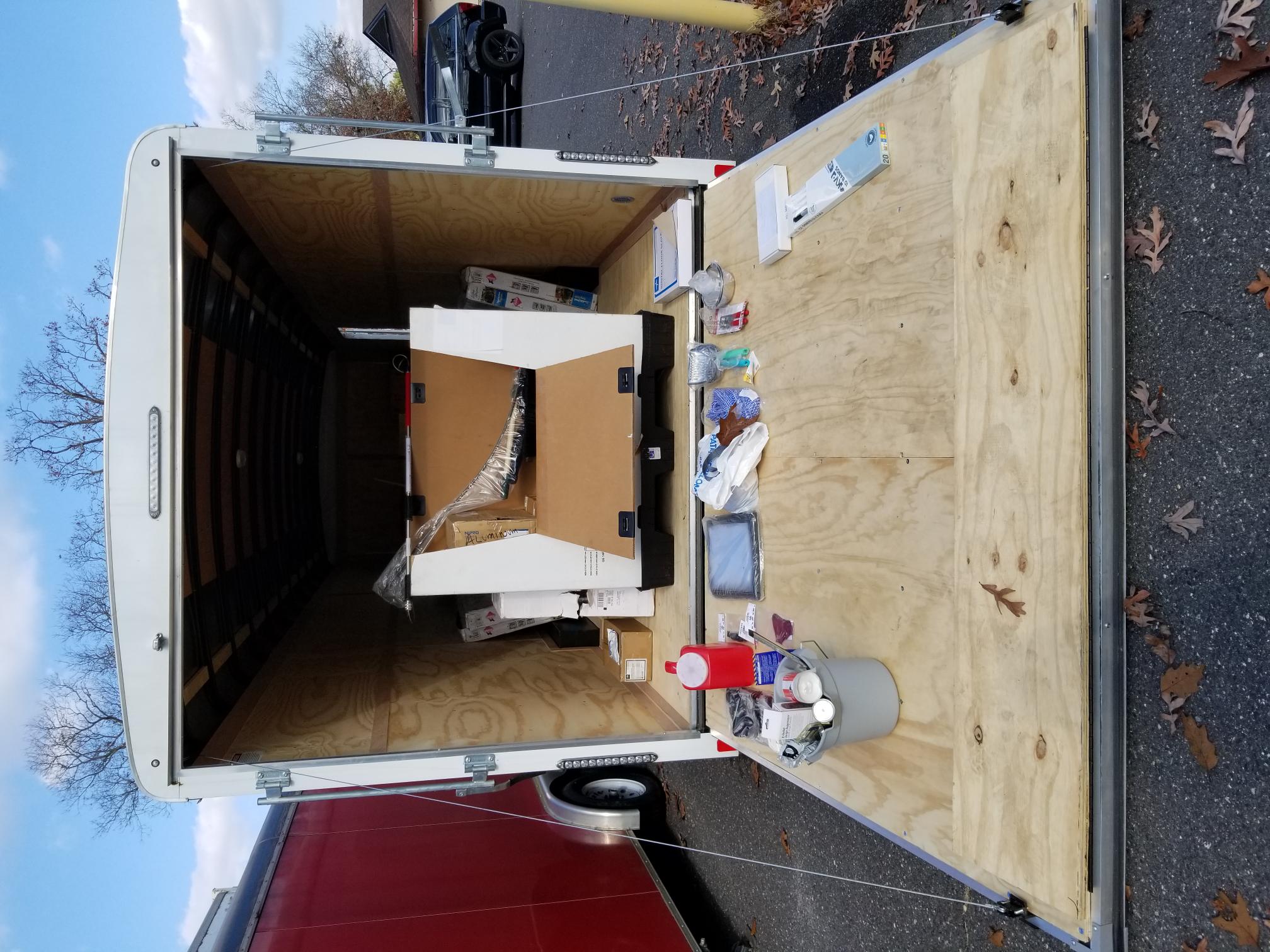State Animal Response Team (SART)
Mission
The New Jersey State Animal Response Team (SART) will provide support to the residents of New Jersey by managing emergency companion animal sheltering a disaster or other large emergency. SART will also support the New Jersey Department of Agriculture (NJDA) during times when circumstances require protection of the animal populations of the State.
Goals
- Enhance New Jersey’s capabilities and aptitude in animal emergency preparedness, response, and recovery
- Train and prepare a volunteer team to be qualified and committed to deployment, when activated, to conduct the operation and management of one or more State Emergency Service pet shelters
- Provide properly trained volunteers as supplemental personnel for activated NJ CARTs, when appropriately requested
- Provide a volunteer team and all required equipment needed to operate and manage a standalone emergency pet shelter
- Provide a volunteer team and all required equipment needed to support NJDA during emergency operations
Objectives
- Implement recruitment efforts through various avenues, including state veterinary organizations, animal rescue groups, and public outreach activities
- Maintain a prepared and appropriately trained group of volunteers capable of building, operating, and managing an emergency pet shelter
- Maintain pet shelter equipment inventory, in partnership with NJ DHS OEM
SART Status
- Currently, the SART will serve two functions:
- Operate and manage a co-located companion animal shelter at a State Evacuation This would occur during a disaster of such magnitude where a county or region is overwhelmed, and a State Emergency shelter needs to be opened
- Support a local CART, with an appropriately trained team of volunteers that can be deployed as extra personnel for an activated CART that has requested it. Basically, a CART can put in a request for more shelter staff when activated and that request could be filled by a SART member or Team).
Principles
- NJ SART utilizes the principles of the Incident Command System (ICS) per the National Incident Management System (NIMS)
- NJ SART Standard Operating Guidelines will remain consistent with those of CART to ensure a standard of training and protocols
- NJ SART members will not self-deploy and will follow all other policies as stated in the SART commitment, code of conduct, and policies document
- The New Jersey Department of Agriculture is the lead agency responsible for the organization and maintenance of NJ SART
- Contact information: sart@ag.nj.gov
Training and Exercises
- Pet/Animal Sheltering training initiatives will be coordinated through the NJ Department of Agriculture, NJ Department of Human Services and other approved organizations supporting the animal emergency mission.
- The training SART members receive will build upon the current State and County Animal Response Teams and enlist the support of other groups, such as other NJ state entities, outside state partners or other organizations, to support this initiative
Activation
- NJ SART deployment will require a formally recognized emergency, such as a county or state emergency declaration for team activation
- New Jersey State Emergency Operations Center -> ESF #11 (Agriculture) -> Designated SART Leader
- OR
- County Animal Response Team (CART), when activated, requests assistance to operate their emergency pet animal shelter.
Deployment
- It is the responsibility of the SART member to arrange or provide his/her own transportation to the deployment location
- If deployed at a location far from home or at the volunteer’s request, housing for the volunteer in the staff area at the General Population shelter in between scheduled shelter shifts may be arranged
- Depending on the nature of the response, NJDA/ESF11, in consultation with the SART Leader, will make determinations on a volunteer roster and schedule during activation
Registration and Commitment and Conduct
- SART Registration and Commitment Statement and Code of Conduct forms must be completed and submitted to the NJDA to enroll as a volunteer
- Background check will be completed before a volunteer deploys with the team
Equipment
- Equipment will be provided by NJDA, NJ DHS OEM as well as other interested partners, utilizing dedicated and grant funding, for the state emergency pet shelters
- A requisition manual provides guidance on the process to monitor supply and restocking of inventory items
Shelter Staff
- Each volunteer should assemble their own Go Bag with personal items prior to deployment
- Preferred dress code: long pants, closed toe shoes (work boots preferred) and any team gear provided
- Travel expenses will be the responsibility of the volunteer
- Liability during deployment is covered by the state through volunteer liability Acts
- To the best extend possible, every effort is made to protect the SART volunteer through multiple safety and security procedures and comprehensive volunteer liability plans
 Official Site of The State of New Jersey
Official Site of The State of New Jersey